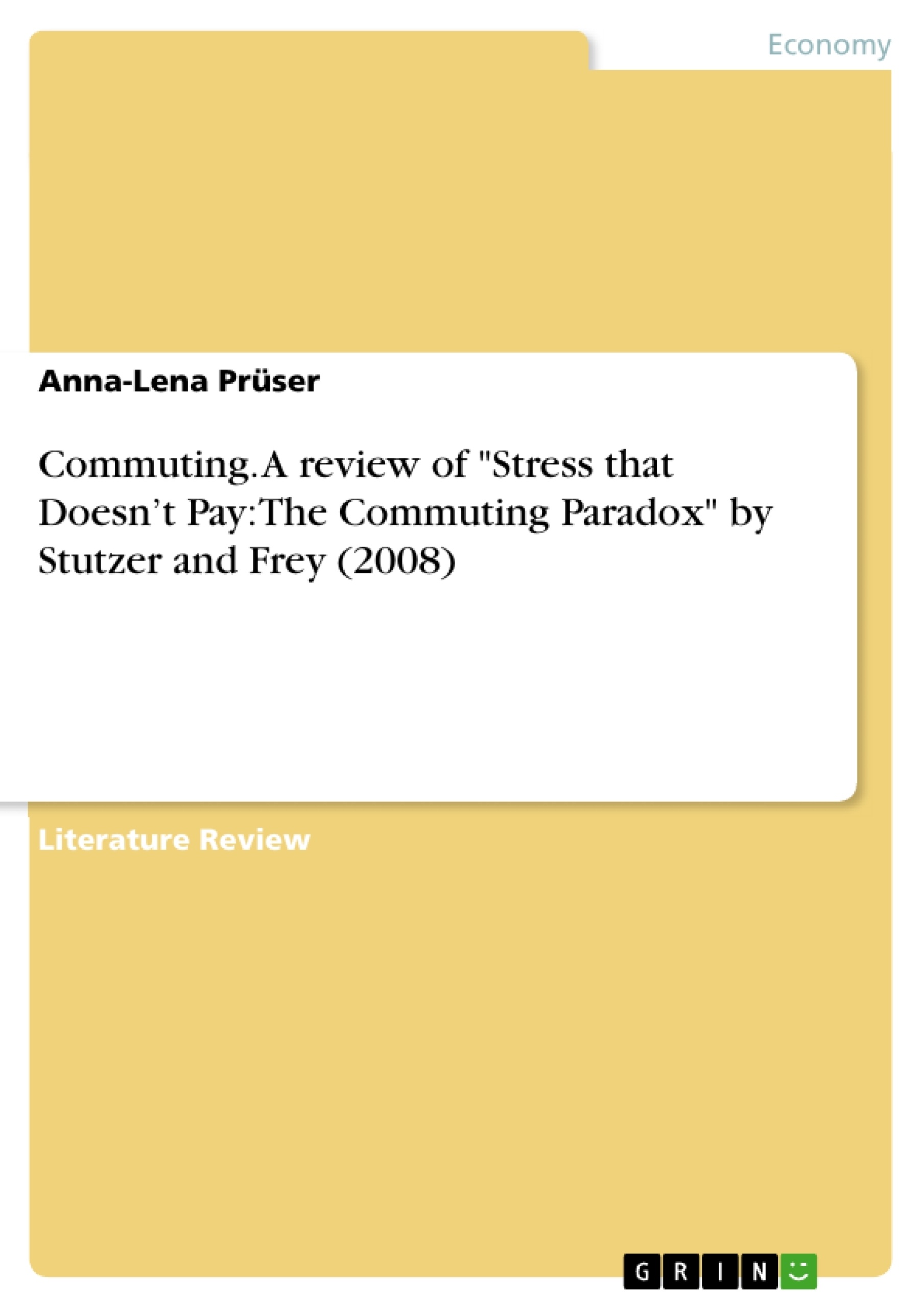Commuting describes the regular travel between residence and workplace. The morning and evening ritual is a time-consuming activity, which is often necessary in order to practice a profession but prevents from doing other more pleasant activities. For 54% of the EU employees it takes up to 30 minutes to commute to their place of work, 30% need 31 to 60 minutes and 16% need even more than one hour for one way, as the European Working Condition Survey recently reported (2015).
Inhaltsverzeichnis (Table of Contents)
- Introduction
- Literature on commuting and well-being in economics
- The commuting paradox by Stutzer and Frey (2008)
- Theory
- Data and testing strategy
- Main findings...
- Possible explanations for the commuting paradox.....
- Methodological shortcomings
- Summary and implications for policy and research
- References
Zielsetzung und Themenschwerpunkte (Objectives and Key Themes)
This paper reviews the research conducted by Stutzer and Frey (2008) on the "commuting paradox," which investigates the relationship between individual subjective well-being and commuting. The paper analyzes the theory, data, methodology, findings, and implications of this research, aiming to provide a comprehensive understanding of the relationship between commuting and well-being.
- The commuting paradox and its implications for individual well-being
- The adequacy of compensation for commuting costs on the housing and labor markets
- The role of commuting time and stress in determining subjective well-being
- The relationship between commuting and labor mobility
- The economic theory of commuting and its application in research
Zusammenfassung der Kapitel (Chapter Summaries)
The introduction provides a brief overview of commuting and its impact on individuals and society. It then introduces the "commuting paradox" and explains the purpose of the paper.
Chapter 2 reviews the existing literature on commuting and well-being in economics. It highlights key findings from different areas of research, including transport economics, urban economics, and labor economics.
Chapter 3 delves into the "commuting paradox" research conducted by Stutzer and Frey (2008). It presents their theory, data, testing strategy, main findings, and possible explanations for the observed paradox.
Schlüsselwörter (Keywords)
The key keywords and focus topics of this paper include: commuting, well-being, subjective well-being, commuting paradox, urban location theory, housing market, labor market, stress, travel time, compensation, rational choice, transport economics, labor economics, urban economics.
Frequently Asked Questions
What is the "Commuting Paradox" according to Stutzer and Frey?
It refers to the finding that people with long commutes report significantly lower life satisfaction, suggesting that the benefits of a better job or home do not fully compensate for the commute.
How does commuting time affect individual well-being?
Increased commuting time is generally associated with higher stress levels and less time for health-promoting or social activities, leading to lower subjective well-being.
Does the labor market compensate for commuting costs?
Economic theory suggests higher wages should compensate for commuting, but Stutzer and Frey's research shows that this compensation is often insufficient to offset the loss in well-being.
How many EU employees commute for more than an hour?
According to the European Working Condition Survey (2015), approximately 16% of EU employees need more than one hour for a one-way commute.
What are the policy implications of commuting research?
The findings suggest a need for better urban planning, flexible working hours, and decentralized job locations to reduce the negative impact of commuting on society.
- Quote paper
- Anna-Lena Prüser (Author), 2017, Commuting. A review of "Stress that Doesn’t Pay: The Commuting Paradox" by Stutzer and Frey (2008), Munich, GRIN Verlag, https://www.grin.com/document/445276



